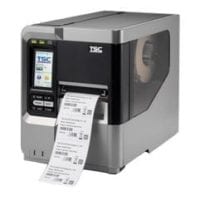
In today’s rapidly digitizing world, efficient and secure identity verification is paramount, especially in sectors like banking and government services. Electronic Know Your Customer (E-KYC) processes, coupled with Aadhaar verification in India, have streamlined customer onboarding and service delivery. Integrating thermal printers into these digital workflows enhances efficiency and security. This article explores how thermal printers support E-KYC and Aadhaar verification in the banking and government sectors.
Understanding E-KYC and Aadhaar Verification
What is E-KYC?
E-KYC is the electronic process of verifying a customer’s identity using digital platforms. It eliminates the need for physical documentation, reducing paperwork and speeding up verification processes. This method relies on digital data and biometric authentication, ensuring a secure and tamper-proof way of verifying identities.
The Role of Aadhaar in E-KYC
In India, Aadhaar serves as a unique identity number for every resident, issued by the Unique Identification Authority of India (UIDAI). It is widely used for E-KYC verification as it includes biometric data like fingerprints and iris scans, along with demographic information. This robust system allows organizations to authenticate identities quickly and accurately.
How Thermal Printers Enhance E-KYC and Aadhaar Verification with Vriddhi L1
Thermal printers are pivotal in streamlining E-KYC and Aadhaar verification workflows, offering fast and reliable printing solutions. With Vriddhi L1, businesses can ensure next-level biometric authentication and seamless integration with thermal printing technology. Here’s how they support digital transformation in banking and government sectors:
- Instant Document Printing : Thermal printers enable on-the-spot printing of crucial documents such as verification receipts, transaction slips, and acknowledgment copies. This feature ensures that customers receive immediate proof of their identity verification, enhancing trust and satisfaction.
- Portability and Convenience : Portable thermal printers are lightweight and easy to carry, making them ideal for field operations. When combined with Vriddhi L1, field agents can perform secure and efficient Aadhaar verification anywhere, ensuring that essential services reach underserved communities.
- Enhanced Security and Accuracy : Thermal printers produce high-quality, tamper-evident prints that safeguard sensitive information. The clarity and durability of thermal prints reduce the risk of fraud and unauthorized modifications.
Applications in the Banking Sector
Thermal printers are instrumental in modernizing banking operations by facilitating efficient E-KYC and Aadhaar verification:
- Account Opening : Banks can streamline the account opening process by instantly printing verification receipts and account details. This reduces waiting times and enhances customer satisfaction.
- Micro ATMs and Digital Banking : Micro ATMs equipped with thermal printers allow banking agents to perform essential financial transactions in remote locations. Customers receive printed receipts for cash withdrawals, deposits, and fund transfers, ensuring transparency and trust.
- Loan Processing and Documentation : During loan applications, thermal printers can print application forms, sanction letters, and other necessary documents on the spot, expediting the approval process.
Applications in Government Services
Government agencies can leverage thermal printers to enhance public service delivery and ensure transparency:
- Public Distribution System (PDS) : Thermal printers facilitate the issuance of receipts for subsidized goods under the Public Distribution System, maintaining accurate records and ensuring accountability.
- Direct Benefit Transfers (DBT) : During the disbursement of government benefits, thermal printers provide beneficiaries with printed acknowledgment slips, reducing disputes and enhancing clarity.
- E-Governance and Citizen Services : Thermal printers support e-governance initiatives by enabling the instant printing of certificates, licenses, and other official documents after Aadhaar verification. This reduces processing times and improves service efficiency.
Advantages of Using Thermal Printers
The adoption of thermal printers in E-KYC and Aadhaar verification workflows offers several benefits:
· Speed and Efficiency: Thermal printers operate at high speeds, enabling rapid printing of documents, crucial in high-volume environments like banks and government offices.
· Low Maintenance and Cost-Effectiveness: With fewer moving parts and no need for ink or toner, thermal printers require minimal maintenance and are highly cost-effective.
· Durability and Reliability: Thermal printers are known for their durability and consistent performance, even in challenging environmental conditions.
Conclusion
The integration of thermal printers in E-KYC and Aadhaar verification processes has significantly enhanced digital workflows in banking and government sectors. By enabling instant printing of verification receipts and transaction slips, these devices improve operational efficiency, enhance customer experience, and maintain the highest levels of security. As digital transformation continues to evolve, the role of thermal printers in supporting secure and efficient identity verification processes will remain indispensable.
For businesses looking to leverage this technology, Bluprints offers state-of-the-art thermal printers designed to support digital workflows seamlessly, ensuring reliable and efficient E-KYC and Aadhaar verification.
































